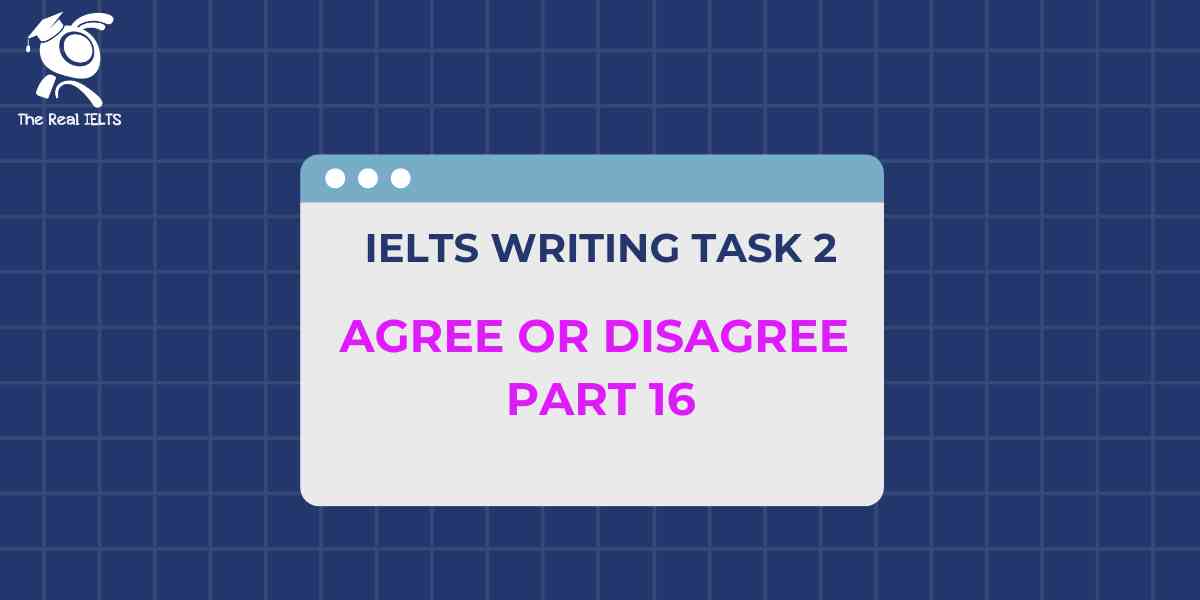Đề bài IELTS Writing Task 2 dạng Agree or Disagree Part 16:
You should spend about 40 minutes on this task
Vaccination should be mandatory for all children. To what extent do you agree or disagree?
Write at least 250 words.
Giải mẫu IELTS Writing
The topic of mandatory vaccination for children is a contentious issue. While some argue that vaccinations should be compulsory to protect public health, others believe that it should be a parental choice. This essay will argue that while there are strong reasons to support mandatory vaccination, there should also be some flexibility to consider individual circumstances.
Firstly, mandatory vaccination can significantly reduce the spread of infectious diseases. Vaccines have been proven to be highly effective in preventing illnesses such as measles, mumps, and rubella. By ensuring that all children are vaccinated, herd immunity can be achieved, protecting those who cannot be vaccinated due to medical reasons. For instance, the eradication of smallpox and the significant reduction in polio cases globally are direct results of widespread vaccination programs.
Moreover, mandatory vaccination can prevent outbreaks of diseases that can have severe health consequences. Unvaccinated children are at a higher risk of contracting and spreading preventable diseases, which can lead to serious health complications or even death. For example, recent outbreaks of measles in various parts of the world have been linked to declining vaccination rates. By making vaccinations mandatory, governments can ensure higher vaccination coverage, thus safeguarding public health.
However, there are valid arguments against mandatory vaccination. Some parents have ethical or religious beliefs that oppose vaccination. Forcing these parents to vaccinate their children could be seen as an infringement on personal freedoms and rights. Additionally, some individuals may have legitimate medical reasons for avoiding certain vaccines, such as allergies to vaccine components or compromised immune systems. In these cases, mandatory vaccination policies need to have exceptions and be implemented with sensitivity to individual circumstances.
Furthermore, education and awareness campaigns about the benefits of vaccination can be more effective than coercion. When parents understand the science behind vaccines and the risks of not vaccinating, they are more likely to willingly immunize their children. Governments and health organizations should focus on providing accurate information and addressing vaccine hesitancy through transparent communication.
In conclusion, while mandatory vaccination for all children has strong merits in terms of public health benefits, it is essential to consider individual circumstances and respect personal freedoms and rights. A balanced approach that combines mandatory policies with educational efforts and exemptions for valid reasons can achieve high vaccination rates without infringing on individual rights. Therefore, I partially agree with the notion that vaccination should be mandatory, but with certain caveats to accommodate individual differences.
Cấu trúc ngữ pháp và cấu trúc câu
Cấu trúc câu và cấu trúc ngữ pháp
- Cấu trúc câu đơn:
- “Vaccines have been proven to be highly effective in preventing illnesses such as measles, mumps, and rubella.”
- Cấu trúc câu phức:
- “While some argue that vaccinations should be compulsory to protect public health, others believe that it should be a parental choice.”
- Cấu trúc câu ghép:
- “Moreover, mandatory vaccination can prevent outbreaks of diseases that can have severe health consequences.”
- “In conclusion, while mandatory vaccination for all children has strong merits in terms of public health benefits, it is essential to consider individual circumstances and respect personal beliefs.”
- Mệnh đề quan hệ:
- “For example, recent outbreaks of measles in various parts of the world have been linked to declining vaccination rates.”
- Cấu trúc câu điều kiện:
- “When parents understand the science behind vaccines and the risks of not vaccinating, they are more likely to willingly immunize their children.”
- Cấu trúc câu bị động:
- “Vaccines have been proven to be highly effective in preventing illnesses such as measles, mumps, and rubella.”
- “By making vaccinations mandatory, governments can ensure higher vaccination coverage, thus safeguarding public health.”
Từ kết nối các câu và đoạn văn
- Từ nối chuyển đoạn:
- “Firstly,”
- “Moreover,”
- “However,”
- “Furthermore,”
- “In conclusion,”
- Từ nối trong câu:
- “While” (dùng trong câu phức)
- “For instance,” (để đưa ra ví dụ)
- “For example,” (để đưa ra ví dụ)
- “Additionally,” (để bổ sung thêm thông tin)
- “Therefore,” (để kết luận)
Từ kết nối ý nghĩa
- Để chỉ nguyên nhân và kết quả:
- “As a result,”
- “Thus,”
- “Therefore,”
- Để chỉ sự tương phản:
- “While”
- “However,”
- “But”
- Để bổ sung thông tin:
- “Moreover,”
- “Furthermore,”
- “Additionally,”
Các từ vựng tiếng Anh cần lưu ý trong bài viết
- mandatory – bắt buộc
- contentious issue – vấn đề gây tranh cãi
- compulsory – bắt buộc
- parental choice – sự lựa chọn của cha mẹ
- public health – sức khỏe cộng đồng
- herd immunity – miễn dịch cộng đồng
- eradication – sự xóa bỏ hoàn toàn
- outbreaks – sự bùng phát
- severe health consequences – hậu quả nghiêm trọng về sức khỏe
- infringement – sự vi phạm
- personal freedoms and rights – quyền và tự do cá nhân
- allergies – dị ứng
- compromised immune systems – hệ miễn dịch suy yếu
- exceptions – ngoại lệ
- coercion – sự ép buộc
- transparent communication – giao tiếp minh bạch
- vaccine hesitancy – sự do dự tiêm chủng
- merits – lợi ích
- individual circumstances – hoàn cảnh cá nhân
- balanced approach – cách tiếp cận cân bằng
- educational efforts – nỗ lực giáo dục
- exemptions – miễn trừ
- valid reasons – lý do chính đáng
- accommodate – đáp ứng, thích nghi
Đọc thêm các bài Luyện Thi IELTS khác trong link nhé.















